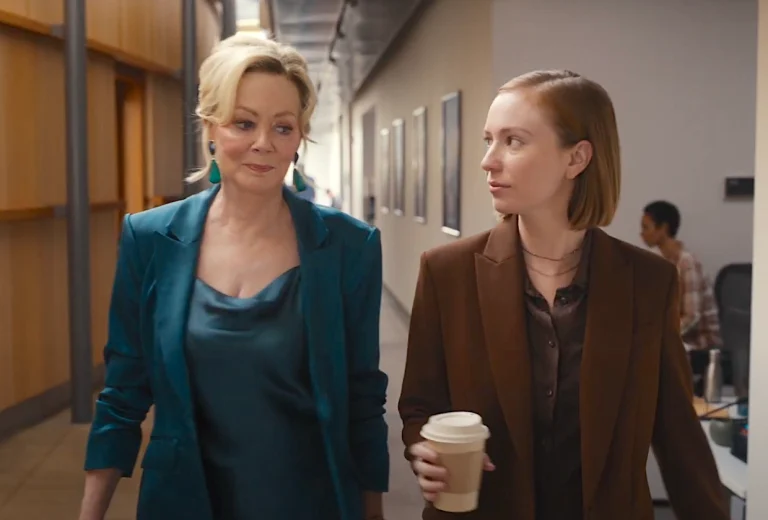
@Courtesy of MAX
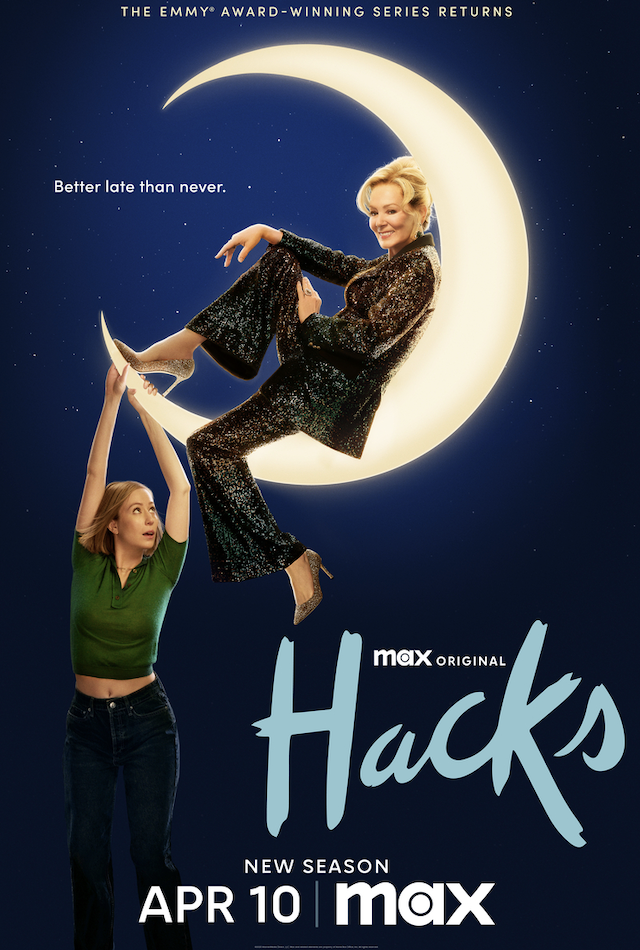
©Courtesy of Max
Q: In Season 4 we are going to see sides of Deborah we have not seen in the previous seasons…
Jean Smart: It’s sort of be careful what you wish for. The pressure gets to her. I give credit to the writing for that, it continually amazes me that they are able to find more and more for us and also keep this dynamic going, because a lot of the fun for the audience is this relationship and the fact that they’ve been able to keep that the way they have. That was my biggest fear after the first season, it’s amazing to me that it continues in the same vein and just gets better and better…I mean meaner and nastier.
Q: Can you talk about what Ava is experiencing and all the things she is going through in this new season?
Hannah Einbinder: Ava is in a position where her hand has been forced. She has to speak Deborah’s language but she still has her core, still retains that spirit but just has to play ball. It’s been really cool to get to play the adversary.
Q: How did you come up with these ideas for taking this show into Los Angeles?
Paul W. Downs: We have been building this for a long time. We always knew we wanted Deborah to get her white whale, to get this late-night show. There is a lot of behind the scenes drama and comedy that happens at a late-night show, it was really fun to explore that.
Lucia Aniello: It was a fresh challenge to be able to write the two of them in an office setting, that’s a scenario we all know, the rest of the world knows more than potentially some comedians. It felt like a really fresh place in addition to the actual getting a show off the ground.
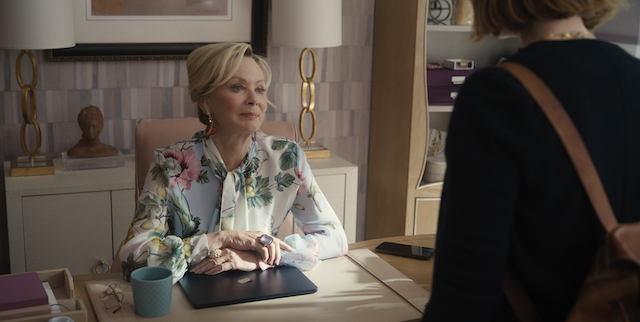
@Courtesy of MAX
Q: Can you talk about your acting instincts? Can you talk about your acting sense for example in the scenes you fight?
Jean Smart: Playing any scene opposite Hannah, everything is easy because she’s true. It’s in her eyes, she’s right. She’s right there.
Hannah Einbinder: Acting with Jean has a beautiful flow and that helps to have a continuous shot. We are so deeply close to these characters, so it does just come naturally, and the dialog of course leads the way. We’re able to embody that tension and that weird energy.
Lucia Aniello: Something that we sometimes do in the writing is feel like we have to explain how people feel, try to make sure that the audience is connecting with the characters. But once Jean, Hannah and all of our actors start to embody it, all of a sudden you realize it’s superfluous because they’re able to show such vulnerability. That really makes it easier for us. They do so much of the heavy lifting in terms of helping the audience get into the emotional perspective of the character.
Q: There’s a very diminishing notion that women in the workplace always become adversaries. Is that a notion that came to mind consciously in writing this season, where the two main characters are now confined to an office space?
Lucia Aniello: I think they came into the season already having their confrontation. It wasn’t necessarily like: “Oh, once they’re in the office now, they’re going to start feuding”. The relationship they have already grows and changes as a result of being official coworkers. They’ve always worked together, but now it feels like they are coworkers, which weirdly feels different because HR is involved. There’s something interesting in the dynamic playing out that way in what happens, to watch these people who create art together. That’s something we’ve actually all encountered because the three of us met making comedy in New York. For us to now be showrunning together, for example, it is a different skill set. It’s something that we then put on to the characters. What is it like for Deborah and Ava to have employees of their own, and how do they approach those relationships as well as with each other?
Jean Smart: I’ve always found it insulting that people have this idea that women can’t get along, and men do.
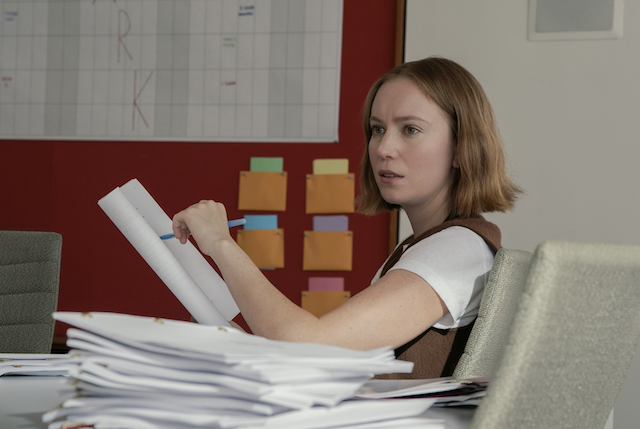
@Courtesy of MAX
Q: You’ve spent most of your life in and around Hollywood. What has kept you grounded?
Jean Smart: Who said I was grounded? Especially when my kids were younger, I used to say: “I just think of myself as a housewife with a really weird job!” We have kids and a house: that keeps you grounded. I was lucky, I was brought up by wonderful parents. We didn’t have much, my dad was a schoolteacher. He worked two jobs because he had four kids. And my mom made our clothes. I didn’t feel like I lacked for a thing, but we didn’t have extras. I’m glad that I was not spoiled. I’m actually very grateful for my childhood. Everything nice that’s happened to me, in my adult life, I don’t take for granted.
Q: You have this crazy tension between you: how do you build that as an actor?
Hannah Einbinder: We have a great intimacy coordinator this year. I loved working with her. I’m in a really safe environment. I have a lot of queer people around me, a lot of women around me. Our sex scenes on Hacks are always written with a comedic element to them. Nothing is pure or gratuitous at all. There’s always a comedic angle, which I enjoy. I will say I have found it incredibly liberating to be nude on camera. It has been healing in many ways. It has helped me to normalize the female form or the form that I have. It has helped me to feel more cool and free. I looked at actresses like Mikey Madison or Emma Stone, I’ve heard them talk about it in a similar way, having similar experiences where it does feel kind of freeing and empowering.
Q: In the face of so much discrimination against the queer community, how meaningful is it to you to have multiple queer characters represented on the show?
Hannah Einbinder: Very, very meaningful. It’s important now more than ever. In the face of such horrendous fascist crackdown on our community, it’s really important for people to be able to see themselves fully and see themselves in a way that is fully realized. It is really, really meaningful to be a part of it.
Lucia Aniello: No matter what legislation tries to pass or does pass, at the end of the day we are reflecting society. Gay people exist, trans people exist, non-binary people exist, and there’s nothing anyone can do to stop them from existing.
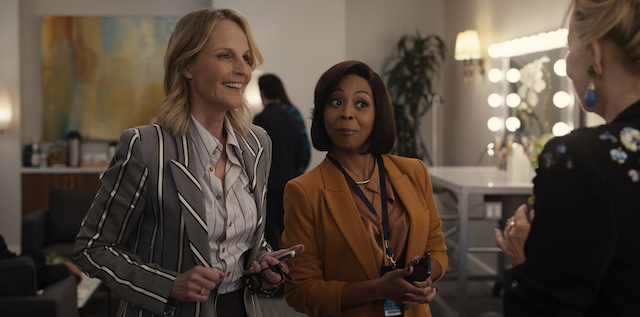
@Courtesy of MAX
Q: Unlike a lot of shows where you see a decline, Hacks has done the complete opposite. Every season, just get better and better. How do you keep the spirits up during those tough times?
Paul W. Downs: We have been through a lot together. We were a show that was made pre-vaccine. So we started out wearing two masks and a shield and being six feet away from each other. It’s like we’re forged in fire. It takes a huge community of people. When you’re on a show or you’re on a set where you do have all of these hurdles and you can see them tangibly, it just bonds you and brings you closer together. Comedy and tragedy exist sometimes simultaneously in life. It has reflected the tone of the show, the things we’ve gone through because we’re making a comedy, but we’ve been through pandemics and fires and deaths and all kinds of things.
Q: We’re seeing more complex and vibrant seniors than we might be used to on the small screen. Do you think we’re witnessing a shift in how seniors are being depicted on TV?
Jean Smart: I think it’s happening because of me [laughs]. I get a little uncomfortable when the subject comes up because I don’t want to be like the poster child for older actresses. But certainly it’s nice to be able to play a character where you show that people have the same hopes and dreams and desires and everything that they do when they’re 30. Like Lucia was saying, that’s part of real life, it’s great. If our show has helped with that a little bit, then bravo.
Lucia Aniello: Older people are cool, funny and sexy. Jean has contributed to the reframing of that narrative, as she says, “hotter than I’ve ever been.” That’s a quote from the show and I think that’s true.
Jen Statsky: This season in particular is about going after your dream and getting it. We do a great disservice to us all when we put media out there that says that you can only go after your dreams to a certain age. That’s so sad. We should reflect a world where you don’t have to stop trying.
Paul W. Downs: We all need to be able to see characters that are unlike you. It’s really representative of what we wanted to do with the show, look at these stories that have been overlooked. What we first started talking about the show is about female comedians and female stand ups who didn’t have the same accolades or the same opportunities that all of their male counterparts had, many of them who got late night shows. That’s true also for older people, but also for women and queer people. We want to center stories that haven’t been told. That is central to what the show is about and hopefully why it resonates with people.
Lucia Aniello: There’s something really cool about the fact that Deborah Vance is continuing to grow and learn and open her heart up. That’s something that people who continue to do always find their lives to be enriched as a result.
Jean Smart: She was a person who just hung on to anger, bitterness and resentment. To see her being able to let go or at least recognize that, it’s important because it’s shocking how long it takes you in life to learn stuff.
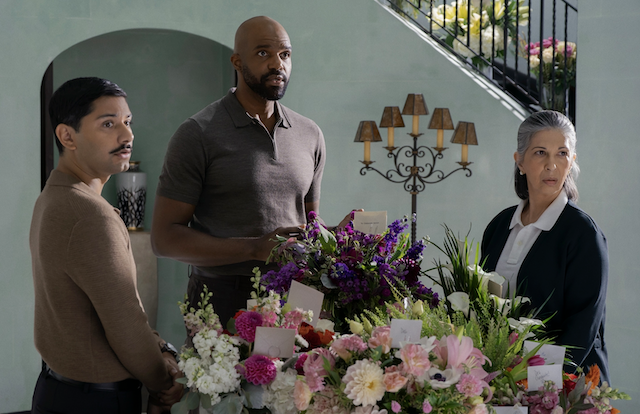
@Courtesy of MAX
If you like the press conference, share your thoughts below!
Check out more of Adriano’s articles.
Here’s the trailer of Hacks Season 4:

